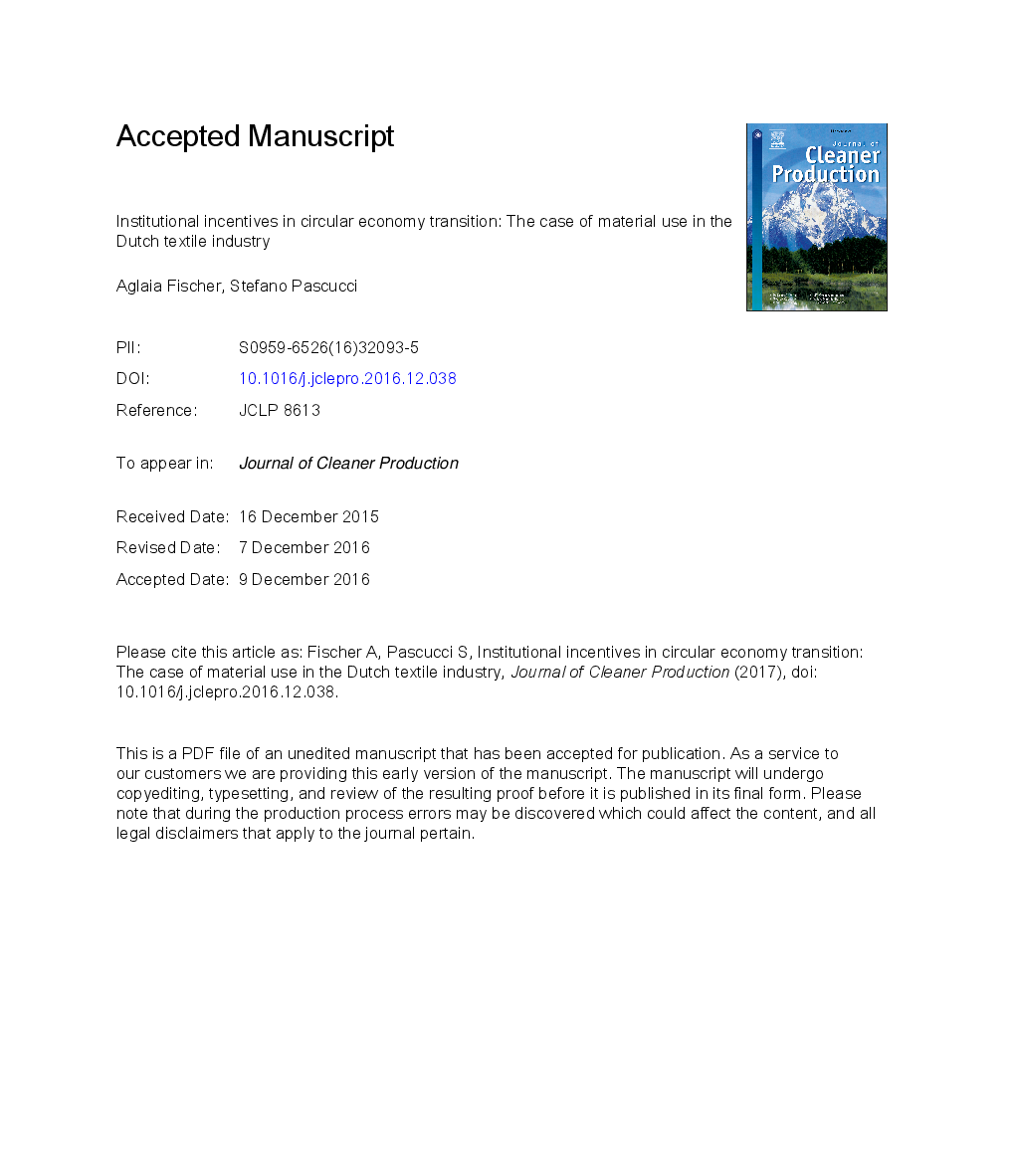ترجمه فارسی عنوان مقاله
انگیزه های نهادی در گذار به اقتصاد مدور: مورد استفاده مواد در صنعت نساجی هلند
عنوان انگلیسی
Institutional incentives in circular economy transition: The case of material use in the Dutch textile industry
| کد مقاله | سال انتشار | تعداد صفحات مقاله انگلیسی |
|---|---|---|
| 98305 | 2017 | 33 صفحه PDF |
منبع

Publisher : Elsevier - Science Direct (الزویر - ساینس دایرکت)
Journal : Journal of Cleaner Production, Volume 155, Part 2, 1 July 2017, Pages 17-32

